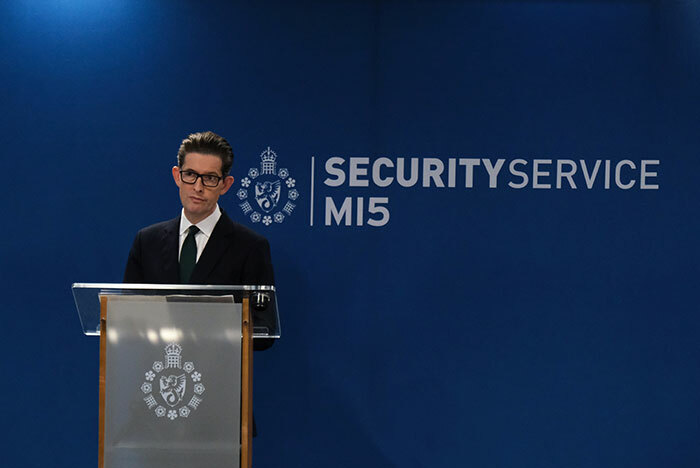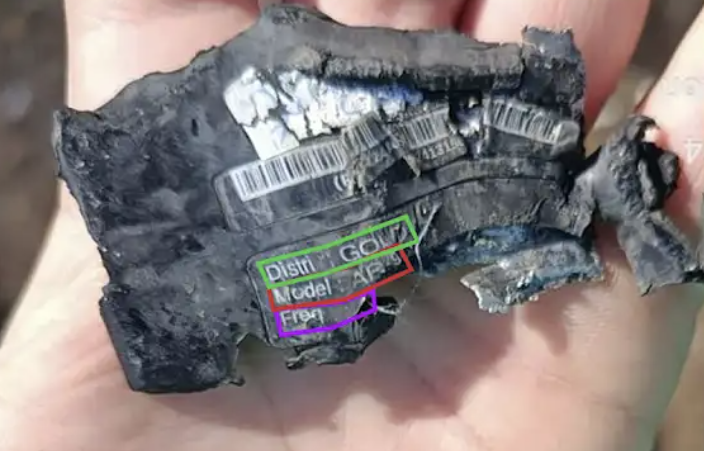
news
MI5 Director General gives threat update for the UK
MI5 Director General, Ken McCallum, began his speech by providing an update on the threat to the UK from terrorism, stating that since March 2017, MI5 and the police have together disrupted 43 late-stage attack plots.
The headline split of counter terrorist work remains roughly 75% Islamist extremist, 25% extreme right-wing terrorism. But under that headline, much has shifted. Straightforward labels like “Islamist terrorism” or “extreme right wing” don’t fully reflect the dizzying range of beliefs and ideologies that are seen.
McCallum said there are more volatile would-be terrorists with only a tenuous grasp of the ideologies they profess to follow. People viewing both extreme right wing and Islamist extremist instructional material, along with other bits of online hatred, conspiracy theories and disinformation.
It’s harder these days for investigators and their police counterparts to quickly and definitively determine whether an act of violence is ideologically motivated or driven by another factor like mental health.
He also spoke of worrying numbers of young people being involved in terrorism. 13 per cent of all those being investigated by MI5 for involvement in UK terrorism are under 18 — this represents a threefold increase in the last three years. This is particularly the case for extreme-right-wing terrorism, which, according to McCallum, is “driven by propaganda that shows a canny understanding of online culture”.
In both Islamist extremist and extreme right-wing terrorism, lone individuals, who are indoctrinated online, continue to make up most of the threats. However it is difficult to separated the real plotters from ‘armchair extremists’.
McCallum spoke of the problems with aspects of the internet and encryption, highlighting the importance of lawful access to communications co-existing with privacy.
Speaking of the online world, he said: “the insidious effect of internet hatred and disinformation has played into threats to election candidates, intimidation of communities, and the public disorder that followed the sickening attack in Southport”.
Moving on to the conflict in the Middle East, acknowledging the Hamas attacks on Israel and continuing loss of life in Gaza and Lebanon, he highlighted the implications for Middle Eastern and UK security.
The events in the Middle East could trigger terrorist action in the UK, as has already been seen with a knife attack in Hartlepool.
However, McCallum said that the terrorist threat that concerns him the most comes from Al-Qaeda and Islamic state.
He said: “Today’s Islamic State is not the force it was a decade ago. But after a few years of being pinned well back, they’ve resumed efforts to export terrorism. The ISKP attack in Moscow was a brutal demonstration of its capabilities. We and many European partners are detecting IS-connected activity in our homelands, which we are moving early to disrupt.
“And Al-Qaeda has sought to capitalise on conflict in the Middle East, calling for violent action.”
The stats highlight that over the last month, more than a third of the top priority investigations have had some form of connection, of varying strengths, to organised overseas terrorist groups.
He also mentioned Northern Ireland, where the threat level has been reduced to substantial, but where there are still aspirations to mount attacks.
The speech also highlighted state threats. In the last year, the number of state threat investigations being run by MI5 has increased by 48 per cent.
Mentioning the war in Ukraine, McCallum warned of Putin’s teams making efforts to attack elsewhere.
Since the war began, more than 750 Russian diplomats have been expelled from Europe, which according to McCallum has made a dent in the Russian intelligence services’ ability to cause damage in the West.
He also highlighted a shift in Russian state actors turning to proxies including private intelligence operatives and criminals from both the UK and third countries. Again, the internet is a crucial platform for connecting these malign actors.
Moving to Iran, he pointed out that since the killing Mahsa Amini in 2022, the number of threats has risen in the UK. Since January 2022, MI5 has responded to 20 Iran-backed plots presenting potentially lethal threats to British citizens and UK residents.
With the ongoing conflict in the Middle East, there is an increased risk of Iranian state aggression in the UK.
Similarly to Russia, Iranian state actors are also using criminals as proxies including international drug traffickers to low-level crooks.
Finally, he mentioned China, which he said is different to Russia and Iran. The economic relationship between the UK and China supports UK growth and underpins security, but there are risks to be managed.
In conclusion, he said: “I’ll conclude close to home, on something which matters deeply to me: in the end, MI5’s success in keeping this precious country safe is all about our people. They provide so much of our edge over far larger adversaries. Their selflessness in making tough decisions every day, knowing they will never receive public recognition, is to the benefit of the whole UK.
“I likewise salute our law enforcement, intelligence community and government partners, domestically and internationally, whose support and collaboration are key to our success.
“It is my honour to serve alongside the many extraordinary people in MI5. When threats loom large, we are defined by those whose dedication and determination keep the country safe”.

10,000 North Korean troops in Russia's Kursk region

Internet Archive's the 'Way Back Machine' suffers a significant data breach

Russia-paid influencers and trolls step up efforts to influence U.S. election

Bellingcat OSINT investigation into the origin of exploding pagers in Lebanon

The role of tracing in digital asset disputes

NFTs defined as property – but do they have value?

Worldwide Freezing Orders, Urgent Injunctions and Disclosure Orders Secured at the High Court against Persons Unknown connected with Matic Markets and the Huobi Exchange

10,000 North Korean troops in Russia's Kursk region

Internet Archive's the 'Way Back Machine' suffers a significant data breach

Russia-paid influencers and trolls step up efforts to influence U.S. election

Bellingcat OSINT investigation into the origin of exploding pagers in Lebanon

The role of tracing in digital asset disputes

NFTs defined as property – but do they have value?




